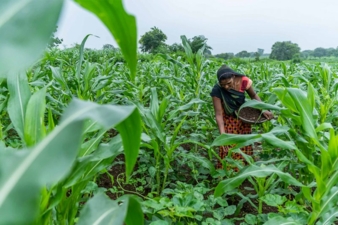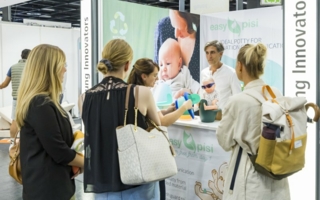05/09/2023 – s.Oliver Group
Traceable supply chain up to cultivation
The s.Oliver Group helps nearly 400 farmers in India to grow organic cotton through the Empowering Farmers program. This will be used from the spring/summer 2024 season.
This is the first project of the company with a direct and transparent supply chain that starts with the cultivation of the raw materials (a purchasing model known as direct sourcing). It is intended to strengthen the livelihoods of the farmers and their families and at the same time ensure transparency along the entire supply chain. In 2022, over 90 % of the cotton used was already obtained from responsible, verified and certified sources.
Sonja Balodis, Chief Product Officer at s.Oliver Group explains: “Sustainable management is a key value for us as a family company. The Empowering Farmers program is not just about contributing to our sustainable fiber strategy, through which we want to consistently increase the amount of sustainable products for customers. By focusing on organic cotton and supporting local initiatives, we can also make a valuable contribution to the two issues of environmental protection, and work and living conditions in farming.” The program covers essential components of the sustainability strategy of the s.Oliver Group.
Economically viable supply chains
The Empowering Farmers program came out of the Partnership Initiative Organic Cotton in India, which the s.Oliver Group has been part of since April 2022. It is managed by the Partnership for Sustainable Textiles and the Organic Cotton Accelerator (OCA), and has the goal of developing an environmentally friendly and economically viable supply chain. Despite the high demand, organic cotton makes up less than 2 % of global cotton production. The s.Oliver Group works closely within this framework with the Vasudha Cooperative and undertakes to purchase a defined quantity of certified organic cotton or cotton in conversion over a period of three years. The small businesses receive a bonus that is higher than the market price to increase the incentive to convert to organic farming. This is because in the three-year conversion phase in which lower yields may be achieved, producers can usually only offer their goods at the conventional price.




